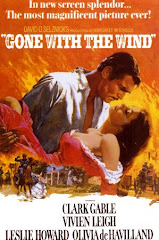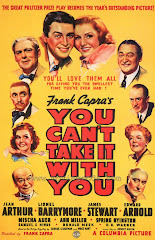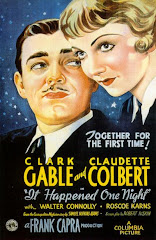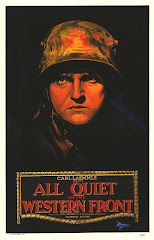Director: Robert Rossen
Cast: Broderick Crawford, John Ireland, Joanne Dru
Genre: Drama
Other Nominees: Battleground, The Heiress, A Letter to Three Wives, Twelve O’Clock High
Is it possible to corrupt even the most honest and decent of people? All the King’s Men takes a hard stance on the subject showing us a very decent and loving family man attain a position of power and then proceed to delve into corruption. The fall from grace is so drastic that this man passes beyond being just corrupt and by the end trends towards becoming truly evil. This is a hero to villain story that blatantly warns us of how frail the condition of being a good person is. While the message may come across as overzealous at times, there is no doubt that the movie sets out to scare you into believing that we are all corruptible and that nobody can be trusted.
At the beginning of the film we meet a witness to these events, Jack Burden (John Ireland). Jack is a newspaper columnist assigned to travel to a small southern town and investigate the political rumblings caused by a then small time, uneducated politician by the name of Willie Stark (Broderick Crawford). It seems that the corrupt officials of the town are making some questionable deals that focus on lining their own pockets rather than on the good of the people. When Jack asks his editor what is so special about Willie the editor replies in all seriousness that “they say he’s an honest man.”
Willie Stark’s first dalliance with politics occurs when he learns that the building of a local school has been done cheaply to profit those in charge and publically expresses his outrage. He is eventually arrested for his outspoken actions. Soon after the school tragically collapses, and as people look to point the finger of blame, Willie Stark finds himself promoted to a highly trusted member of the community and people begin to flock to him for help with problems. With the purest of intentions Willie puts himself through law school and opens up a firm to help take on these problems, and becomes a local champion against injustice and corruption.
In this early segment of the film great pains are given to show how good a person Willie is. We learn that he and his wife adopted their son from the neighboring farm when both of the boys’ parents passed away. In these early scenes we see a man with absolute adoration for his wife and son, a man completely content with his own family life while being equally focused on helping others reach the same level of contentment. In short Willie appears to be very much the “honest man” that he was described as.
However, born from the frustration that comes from losing his first political race we begin to see the seeds of the monster that Willie will become. Determined to win the next time he runs, Willie begins to loosen his moral sense. At first he makes statements like “the ends justify the means” as he begins to make the same bad deals that he fought so hard against. In his defense at this time there does appear to be a focus on the “ends” with aggressive plans for a new hospital and free health care for all and a focus on education for every child in the state. But as more and more lucrative deals are brokered and as roads, bridges, hospitals, and churches get built across the state, we begin to see the focus shift towards the gaining of wealth and power.
It was interesting to watch Willie make no attempt to hide his increasingly immoral transgressions and begin preaching that “good cannot exist alone, that it can only be born from bad.” At this time we are dealing with a man who is habitually a part of bad dealings and whose sense of purpose has been lost. But like most villains who remain in power he has a way with words and a charming demeanor that allows him to delay any repercussions.
In contrast to the earlier scene of familial bliss the Willie Stark we see in the latter half of the film lives away from his wife and son. He begins to have multiple affairs and the love that existed in those early scenes is utterly destroyed. When the family gathers for a portrait on the front porch of their rural home it is for purely political reasons and his wife’s earlier warm embraces are replaced by a cold and distant peck on the cheek. This demolition of the family is where we see just how much Willie Stark loses sight of himself as the movie progresses. Finally he reaches a state of pure corruption and his mantra changes to “man is conceived in sin and born in corruption”, a statement that both takes away any responsibility he has for his actions and frees him of any remorse.
We see this rise and fall of Willie Stark mostly through Jack Burden’s eyes, the reporter who was sent to investigate the honest politician. The admiration that Jack feels for Willie and for the work he is doing, coupled with the feeling that he himself is not accomplishing anything with his own life, causes Jack to gamble all of his worth, his career, his family and his friends on being associated with Willie. I use the word gamble because I get the sense that, out of a sort of desperation, Jack is betting it all on Willie coming good on his word. And when Willie begins to fall into corruption Jack cannot simply walk away nor can he even accept what is really happening, having invested so much. I struggled throughout the film to understand why Jack remained a supporter of Willie even when his methods turned extremely sinister. But it is quite clear that Jack is a man with little self worth and when a “sure bet” like Willie came along he jumped at the opportunity to be part of something important, and in the end he simply refuses to see when things turn horribly wrong.
I do find the aforementioned “man is conceived in sin and born in corruption” quote interesting for another reason. One of the big themes in this film is the idea that anyone can be corrupted no matter how pure they are. While Willie begins this story as nothing short of perfect, at the risk of sounding dramatic, his rallying speeches to the crowd or to “his militia” found at the end of the film remind me of footage of Adolf Hitler rallying his troops. Willie is full of pride, emotion and enthusiasm but his words hint at an aggression that will mow down innocent people before it and at a man that will do anything to get ahead.
Remember, it is not I who have won, but you. Your will is my strength, and your need is my justice, and I shall live in your right and your will. And if any man tries to stop me… I'll break him. I'll break him with my bare hands, for I have the strength of many.
John Wayne was offered a role in this film and flatly turned it down, calling the film “unpatriotic”. I am assuming he was referring to the hostile representation of the political system shown in All the King’s Men. I was a little taken aback by how this film does nothing to dull the blows it takes at politics. The shocked remarks about there being such a thing as an honest politician scrape the surface of the political stance the film takes. It outright suggests that, not only is our society under a fragile sense of control, but that it inevitably breeds corruption. The movie gives no vision of the it being capable of producing anything but corruption and it was a little surprising to see such distaste in the American political system, especially at a time when America was emerging as the land of freedom.
Up Next: All About Eve





















































